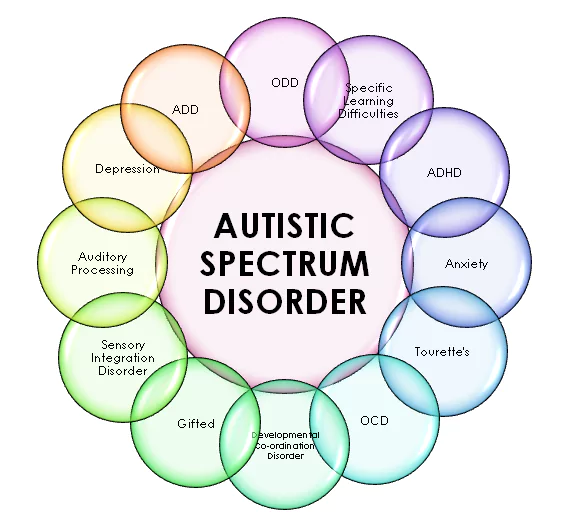 About a century ago, people with noticeable mental deprivations were mostly considered ill, and placed in asylums. Nowadays, when psychologists know much more about different mental conditions, not all of the peculiar mental conditions are considered dangerous, or become a cause for psychiatric treatment. At the same time, not all of these conditions are identified as illnesses—many remain a mystery, or require additional scrutiny. One of such conditions is autism.
About a century ago, people with noticeable mental deprivations were mostly considered ill, and placed in asylums. Nowadays, when psychologists know much more about different mental conditions, not all of the peculiar mental conditions are considered dangerous, or become a cause for psychiatric treatment. At the same time, not all of these conditions are identified as illnesses—many remain a mystery, or require additional scrutiny. One of such conditions is autism.

✅ AI Essay Writer ✅ AI Detector ✅ Plagchecker ✅ Paraphraser
✅ Summarizer ✅ Citation Generator
In fact, autism—or more accurately, autism spectrum disorders—is a complex of disorders that occurs during brain development. All of them are united by a relative similarity of symptoms, such as social dysadaptation, difficulties with verbal communication, the lack of empathy or emotional expression, repetitive behaviors, and so on. According to the recent (in 2013) update to the DSM-5 diagnostic manual, all diagnoses related to autism, such as autistic disorder, childhood disintegrative disorder, or pervasive developmental disorder, were united under the diagnosis of autism spectrum disorders (ASD) (Autism Speaks).
The period during which ASD usually develops is considered to be between the first and the third years of a child’s life. According to the statistics, this is a more frequent condition than it was believed before; in 1943, when ASD had been first described, one of 2,000 children was considered to have autism. Nowadays, however, scientists consider that ASD or autism-related conditions can be observed in one out of only 68 children; besides, there is up to a 20% chance that a second child in a family will have autism—given that the first one already has one of the ASDs (UCSD).
Despite the decades of research studies in this field, it is still difficult to name what exactly causes autistic development; what experts agree about is that it might result from more than just a single cause. Numerous evidence shows that autism is caused by a complex of physical factors—not by emotional traumas or mistreatment in childhood—that affect brain development. Some forms of autism may have genetic origins; recent studies have been aimed at determining which genes are responsible for the development of ASD. The main difficulty here is that autism is most likely determined by the ways genes interact with each other, and the ways a child is affected by his or her environment; therefore, there is no genetic testing allowing to diagnose a child’s pre-disposition to developing ASD (NAS).
Symptoms of autism-related disorders are well known: undeveloped social behavior and difficulties with social adaptation (up to complete isolation from one’s society); delayed or in some other way impaired cognition; severely limited interests—an autist shows interest only towards a small part of the world around him or her, sometimes completely ignoring the rest of it; repetitive or ritual behavior; language abnormalities (such as echolalia—repeating once heard words for hours a long time after they were heard) and so on (UCSD). At the same time, many autistic persons possess talents not commonly found in regular people: for example, they can be brilliant mathematicians, or have photographic memory—like Stephen Wiltshire, who created an extremely detailed painted panorama of New York City after seeing it just once.
According to statistics, one out of 68 children has ASD-related symptoms, so the amount of autistic people around us is much higher than expected. However, even though some symptoms such as repetitive behaviors, limited interests, language difficulties, or social dysadaptation can intervene in normal social interactions, they do not necessarily prevent an autistic person from living a normal life, especially with the help of other people. This is also proved by the fact that you might run into several people with ASD during your regular Sunday shopping without even realizing it.
References
“What is Autism?” Autism Speaks. N.p., n.d. Web. 16 Jan. 2016.
“Causes of Autism.” NAS. N.p., n.d. Web. 16 Jan. 2016.
“What is Autism?” UCSD. N.p., n.d. Web. 16 Jan. 2016.
Follow us on Reddit for more insights and updates.





Comments (0)
Welcome to A*Help comments!
We’re all about debate and discussion at A*Help.
We value the diverse opinions of users, so you may find points of view that you don’t agree with. And that’s cool. However, there are certain things we’re not OK with: attempts to manipulate our data in any way, for example, or the posting of discriminative, offensive, hateful, or disparaging material.